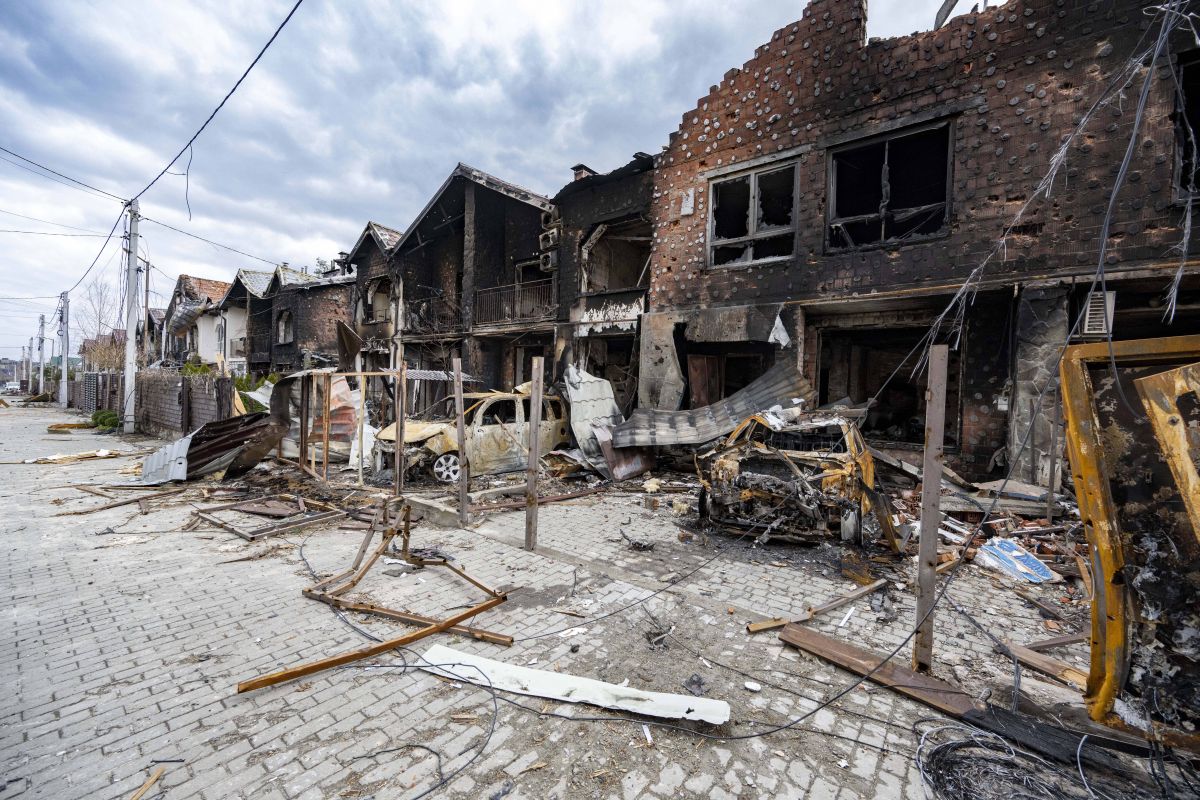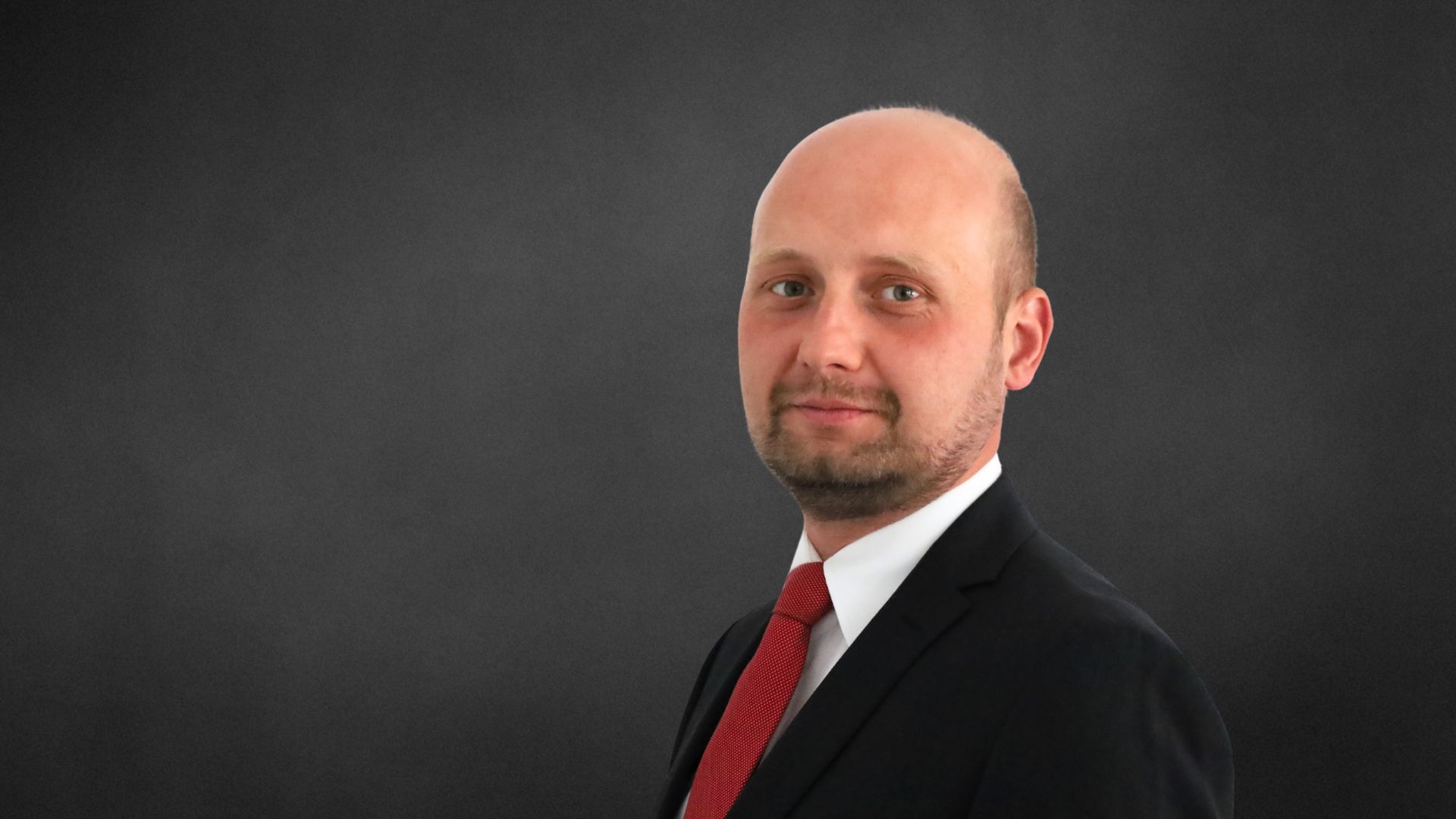The Bucha Massacre-Russian Crimes in the Kyiv Region
From the first days of Russia’s latest aggression against Ukraine, it has been using terror against the civilian population as a strategy of pressure on the Ukrainian society and government. The crimes revealed at the beginning of April in towns near Kyiv, including in Bucha, are confirmation of this Russian policy. Once the evidence is gathered, the aim of the international community should be to bring those responsible to justice.
 I-Images/Zuma Press/Forum
I-Images/Zuma Press/Forum
What happened in the Kyiv region?
At the beginning of April, Ukraine’s armed forces managed to regain control of villages northwest of Kyiv, including Bucha, Hostomel, Irpin, and Vorzel. These areas were occupied for about a month by Russian units belonging to the 35th and 36th Combined Arms Armies of the Eastern Military District, two airborne divisions, and National Guard units. These units appear to have committed mass atrocities against the civilian population during this time. Hundreds of residents were reported tortured and found murdered. The symbol of these events so far is Bucha where some of the victims were buried in mass graves. Due to the inaccessibility of part of the area due to damaged infrastructure and mines, it is currently difficult to give the number of victims, but 410 bodies have already been transported to Kyiv for autopsy.
How should the revealed crimes be classified?
The victims are civilians who were not taking part in the hostilities. That means serious breaches of the 1907 Hague Convention on the Laws and Customs of War on Land, the 1949 Geneva Convention relative to the Protection of Civilian Persons in Time of War, and the 1977 First Additional Protocol to the Geneva Conventions, and constitutes war crimes. The 1984 Convention against Torture also has been violated. The scale and nature of the acts in question indicate that the Russian soldiers involved acted on orders or at least with the consent of their superiors, in a systematic manner and pursuant to a state policy that permits attacks on civilians and civilian infrastructure. This makes it possible to consider them also as crimes against humanity. The fact that the victims were of Ukrainian nationality, irrespective, for example, of their views or social status, and that Russian propaganda repeatedly refers to Ukrainians as “Nazis” and called for a “cleansing” of Ukraine from them, justifies the thesis that the committed acts could also be an intentional destruction of a part of a national or ethnic group, which is genocide.
How can these crimes be proved?
The Ukrainian prosecutor’s office has already taken steps to secure the crime scenes, document the condition of the victims, and collect witness statements. It would be advisable to involve other countries and organisations in these efforts in order to counter Russian accusations of fabricating evidence. Support can be quickly provided by Poland and Lithuania, which together with Ukraine are part of a Joint Investigation Team (JIT) set up on 28 March and supported by the EU agency Eurojust (similar to the one set up after the downing of flight MH17 over eastern Ukraine in 2014). It would be desirable to get countries outside Central Europe involved as well, for example, as part of the international commission called for by Polish Prime Minister Mateusz Morawiecki on 4 April. A new investigation team, announced by the European Commission on the same day, could help with this. The team is to cooperate with the Office of the Prosecutor of the International Criminal Court (ICC), which has been investigating crimes committed in Ukraine since 2 March. It would also be advisable to coordinate its activities with the investigative commission of the Office of the UN High Commissioner for Human Rights. Information collected by media and shared on social networks will play an important role in documenting the crimes.
Who can prosecute and punish those suspected of committing these crimes?
Those who may be prosecuted and punished for crimes are the direct perpetrators (soldiers, lower-rank commanders) and others in the chain of command, potentially up to the Supreme Commander-in-Chief of the Russian Armed Forces, Vladimir Putin, if it is shown that they had or should have had knowledge of the crimes committed and failed to prevent or punish them. It will be possible to try them before the ICC; however, this will require the Court to issue arrest warrants and apprehend the suspects on the territory of States Parties to the ICC Statute or get them extradited from third countries. In Putin’s case, the execution of such warrants is unlikely (in the past, states refused to arrest suspects, such as Sudanese President Omar al-Bashir, and others).
On 3 April, Ukrainian President Volodymyr Zelensky also announced the creation of a special mechanism with the participation of Ukrainian and international experts to bring those responsible to justice. Perhaps this will be an internationalised tribunal along the lines of those previously established for Bosnia and Herzegovina or Cambodia, for example.
Apart from the tribunals, prosecutors’ offices, and courts in Ukraine as well as in other countries (in their case, under universal jurisdiction) may also prosecute and punish the criminals. The authorities in Ukraine and some of the latter, including Lithuania, Poland, and Germany, have already initiated relevant proceedings. They will be able to issue arrest warrants faster than the ICC and search for perpetrators through Interpol. Even if it is not possible to apprehend these people in the short term, under the 1968 Convention, to which Russia is also a party, all the crimes mentioned above are not limited in time.
What was and should be the subsequent international reaction?
The reports about Russian crimes against civilians in towns near Kyiv has met with a wide response from Western countries. The European Union, which is currently working on a fifth package of sanctions against Russia, announced a tightening of sanctions and further support for Ukraine. The U.S. and UK announced their intention for further sanctions. Lithuania decided to expel the Russian ambassador, citing the Bucha massacre as one of the reasons. Other countries, including Germany and France, announced the expulsion of some Russian diplomats.
However, further action by the international community is necessary. The main objective should be to raise the cost of the military operation for Russia by significantly supporting Ukraine with supplies of weapons, including offensive weapons. At the same time, it is advisable to involve organisations such as the UN more deeply and to consider, in cooperation with Ukraine, the creation of a coalition of the willing for a peacekeeping mission to protect the civilian population. Further diplomatic isolation of Russia and sanctions, as well as a complete suspension of EU gas and oil imports from Russia, should also be considered.



